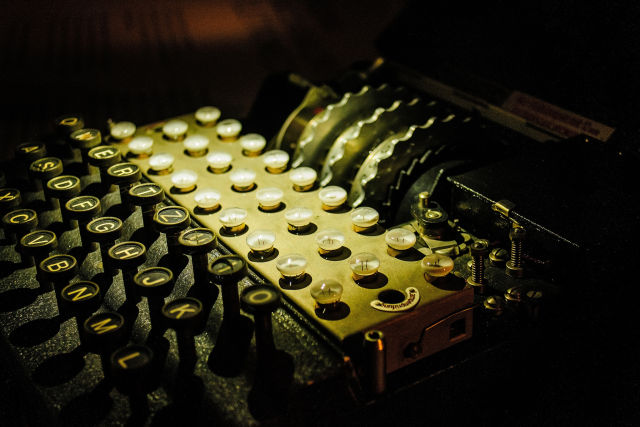
Before Diffie-Hellman, symmetric cryptography—as exemplified by this Nazi-era Enigma machine—was the norm. (credit: Michele M. F.)
On Tuesday, the Association for Computing Machinery, the nation’s leading organization for computer science, awarded its annual top prize of $1 million to two men whose name will forever be immortalized in cryptography: Whitfield Diffie and Martin Hellman.
The 2015 ACM Turing Award, which is sometimes referred to as the "Nobel Prize of Computing," was awarded to a former chief security officer at Sun Microsystems and a professor at Stanford University, respectively.
In their landmark 1976 paper, the Diffie-Hellman key exchange was the first to explore ideas of "public-key cryptography." That concept underpins much of modern cryptography, including PGP encrypted e-mail, TLS, and more. Public-key cryptography, also known as asymmetric cryptography, relies on two keys, one a freely shareable public key, the other a secret private key, thus eliminating the historic key management problem of the same key being kept by both the recipient and sender.